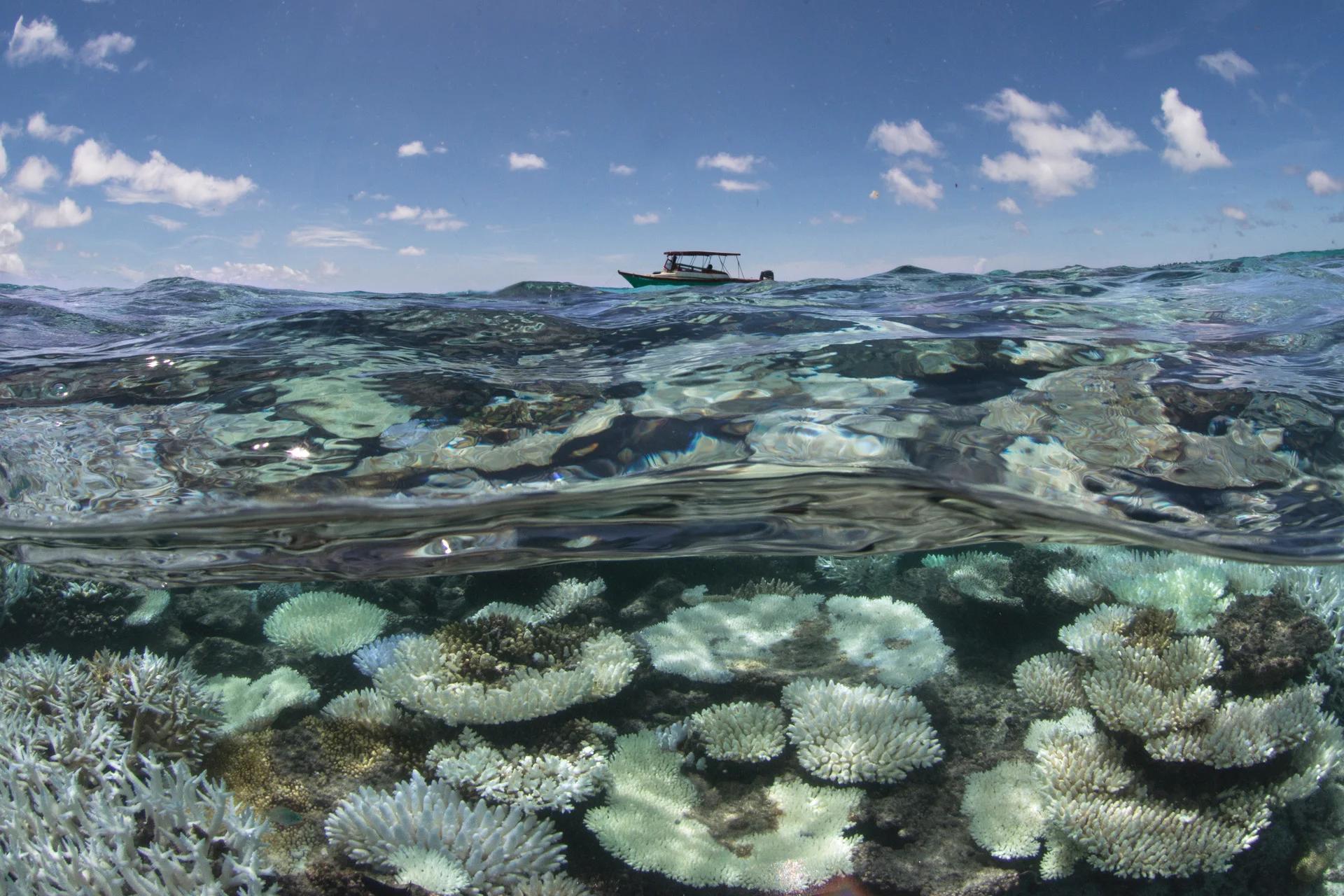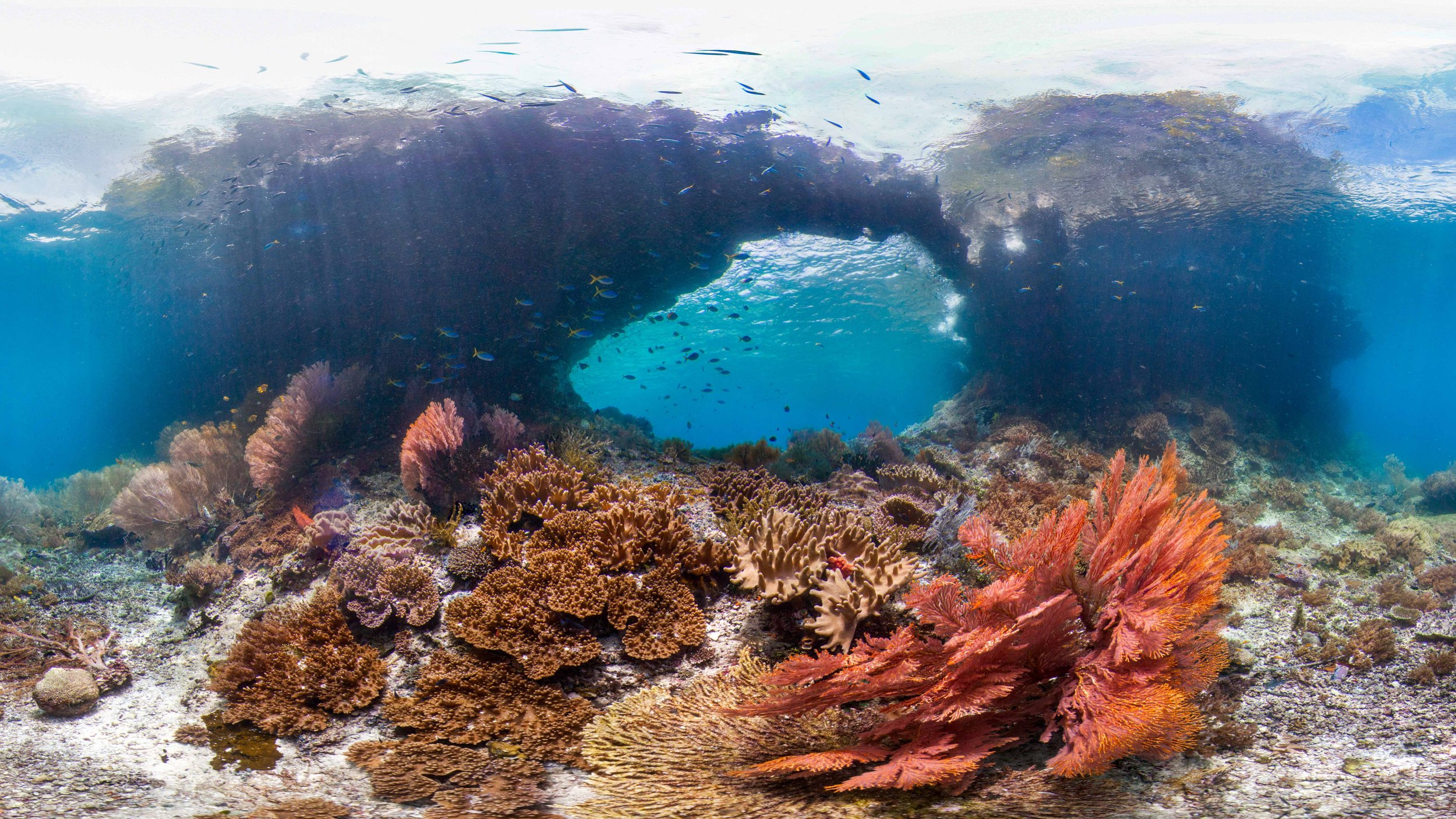A strategic framework for investment and conservation action to help save the world’s coral reefs
The 50 Reefs initiative, initiated by Underwater Earth, was funded by Bloomberg Philanthropies, The Tiffany & Co. Foundation and Paul G. Allen Philanthropies. It was created in partnership with The University of Queensland and the Wildlife Conservation Society.
It was established in early 2017 with the ambitious goal of identifying a global portfolio of coral reefs with a good chance of both surviving the impacts of climate change (1.5ºC above the pre-industrial) as well as being close enough, and hence connected enough, to help repopulate neighbouring reefs.
The science behind the identification of the 50 Reef locations was completed in June 2018, the result, the establishment of a global portfolio of coral reefs anticipating climate-related risks called Bioclimatic Units (BCUs).
The portfolio of 50 Reefs across the globe
THE ISSUE
The world’s ocean is undergoing rapid and unprecedented change and coral reef ecosystems are on the frontline. Coral reefs have historically been compromised by local pressures, such as declining water quality, overfishing, destructive fishing practices, and invasive species. Climate change, which is causing ocean warming and increased storm activity, has now emerged as the number one and rapidly growing threat, compounding these local pressures. Successive years of exceptional ocean warming globally have triggered widespread coral bleaching and mortality, taking a heavy toll on the world’s coral reefs.
Coral reef ecosystems around the globe are likely to disappear by mid-century if the emission reduction goals of the Paris Agreement are not met. Even with strong emission reduction action ensuring we do not exceed 1.5ºC above the pre-industrial, 70-90% of the world’s corals could still disappear by mid-century, leaving just remnants of the coral reefs we see today.
The impact on marine biodiversity and on humans will be immense. The value of coral reefs has been estimated at USD30 billion and perhaps as much as USD172 billion each year, providing food, protection of shorelines, jobs based on tourism and fisheries, and medicines. Coral reefs provide habitat for one in every four species in the ocean. Hundreds of millions of people in some of the world’s poorest developing countries depend on these vulnerable coastal resources for their livelihoods, culture, food security, and nutrition. Coral reefs are just too valuable to lose.
THE OPPORTUNITY
There is hope though. While the impact of climate change on corals is immense, not all coral reefs will be impacted equally. Those coral reefs that do remain, if protected from local stressors, can help play a key role in the long-term survival of coral reefs. They can help replenish neighboring coral reefs once ocean temperatures are stabilized by mid-to-late century.
THE SOLUTION
The 50 Reefs initiative, recognizing this opportunity, began the process in early 2017 of establishing a global portfolio of coral reefs that, in the absence of local pressures, have the greatest potential to survive climate change and are well-positioned to help repopulate surrounding coral reefs over time.
The purpose of undertaking such a task was to help guide long-term conservation efforts at a global scale, by providing a climate-smart framework for strategic investment and conservation action. By pointing to areas where incremental investment in conservation efforts may have the greatest chance of succeeding over the long term, the initiative aimed to reduce the risk of widespread coral reef ecosystem collapse.
The 50 Reefs within this strategic framework include approximately 20% of all coral reefs and have the potential to help protect at least 30% of the coral species on the planet. Potentially, some 120 million people stand to benefit from increased protection of the regions identified.
Raja Ampat, Indonesia, Underwater Earth/XL Catlin Seaview Survey/Christophe Bailhache
CLIMATE ACTION
The 50 Reefs strategic framework has been devised to help prioritise efforts surrounding the safeguarding of coral reefs from local stressors, but ultimately coral reefs are only given a fighting chance to survive if the current efforts to combat climate change are also significantly accelerated.
Without decisive urgent action on climate change, reef ecosystems will inevitably face widespread collapse.







